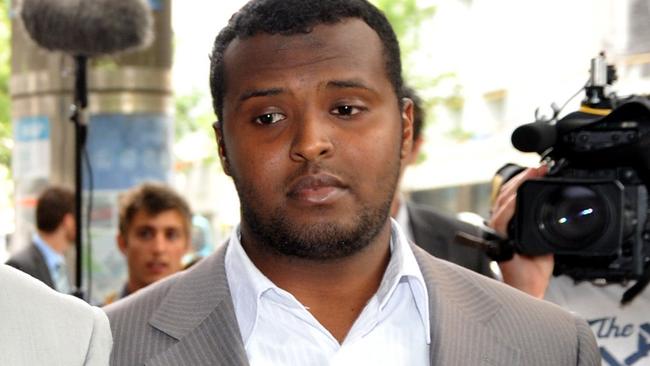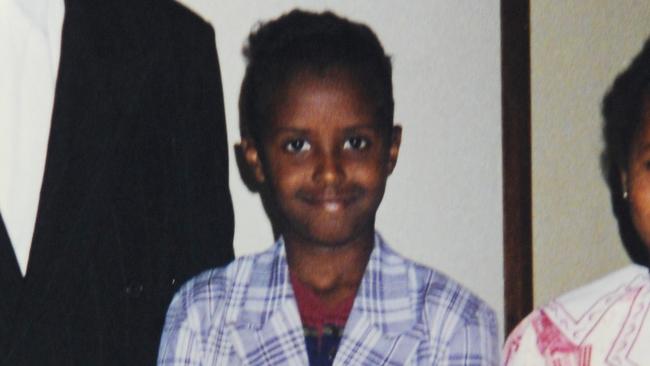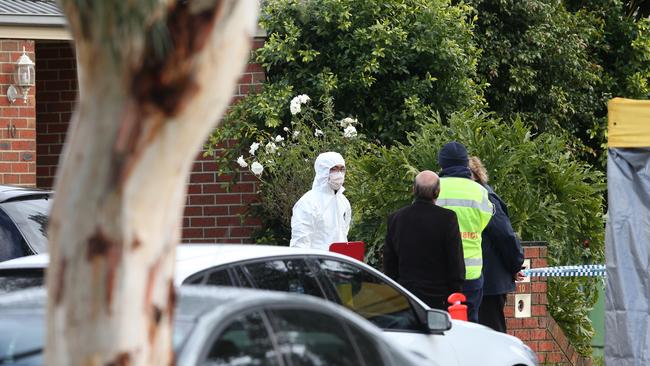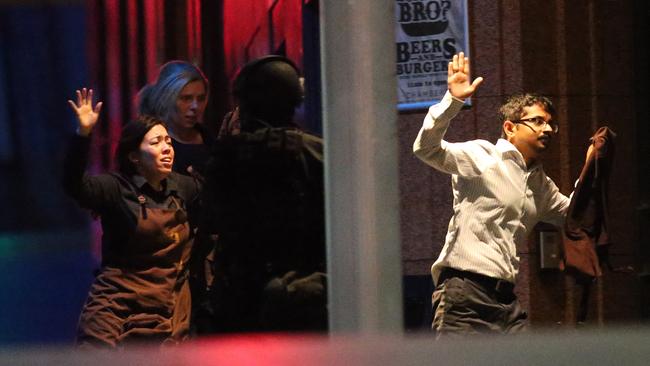Lone wolf terrorists defy detection until they kill in the name of Islamic State
THEY claim to act in the name of Islam, but a chilling profile of lone wolf terrorists reveals a very different picture of the monsters hiding in plain sight.
THEY’VE been called “the wound collectors” and they emerge from bitter solitude to be given a better-known label.
They are the “lone wolf” terrorists who slip through layers of security scrutiny and court processing to become killers in the name of extremist Islam.
Lindt cafe murderer Man Haron Monis was one, and the Melbourne killer Yacqub Khayre appears to have been another.
They claim allegiance to the death cult of ISIS but it can be more a vehicle for their hatred rather than a genuine, long-held commitment.
They are called the “wound collectors” in a paper released in June last year by the Institute for Critical Infrastructure Technology in the US, which offered a profile of the “self-radicalised lone wolf terrorist”.
It said domestic terrorists — those claiming political or religious motives — came from an accumulation of factors “congealed into a troubled mind”.

They can have some or all of the following traits: a mental illness, anxiety, vocational problems, high-stress levels, problems with intimate partner relationships, social awkwardness, violent communications, and high intelligence.
“All lone-wolves lack empathy for their fellow humans. These tendencies develop over a lifetime, not an instant,” it said.
“There is no definitive profile for lone wolves; however, every lone wolf lies on the same spectrum and exhibits some of the characteristics within the profile. Lone wolf tendencies are the result of a lack of socialisation and the formation of meaningful interpersonal relationships in early development. Often, this begins in early childhood or adolescence, with a poor home life.”

The Georgetown University National Security Critical Issue Task Force has a more formal definition which includes the qualification that the lone wolf “does not receive orders, direction, or material support from outside sources”.
However, the ICIT profile notes: “Acts of domestic terrorism in the West are escalating at an alarming rate and due to the instant gratification provided by the internet and social media, there is no perspective, no matter how extreme, that is not readily available in the form of forum, chat or propaganda to the individual who ventures to find it.”

And it said: “The lone wolf may delay action by victimising friends and family or by perpetrating other, smaller crimes. They may even convince others or themselves for a time that the plan is only a hypothetical expression of frustration upon which they will never act.
“At this stage, lone wolf threat actors are nearly ready to cause serious harm. Ironically, this is also the most difficult time to detect their intent.”
Yacqub Khayre, the man who killed an apartment worker and held a woman hostage in Melbourne, ticks many of those boxes.
He was violent and a criminal. He was jailed for three years after conviction for a home invasion in which a woman and her father were beaten. And in jail he continued his violence.
And then he was paroled, a matter certain to lead to high-level discussions at the federal-state Council of Australian Governments meeting this week.
He was an Australian national who came with his refugee parents from Somalia when he was still a young child.
Victoria’s Police Chief Commissioner Graham Ashton said Khayre was known for his criminal record, but not as a terrorist suspect. He was cleared of involvement in a 2009 plot to attack a military base, but did not appear again on the national security screens after that.
“All the indications thus far — there is nothing that we’ve found thus far that would suggest to us that this was anything that was planned or done in concert with others,” said Mr Ashton.
“At this stage it’s just too early to know, how random this was in terms of whether it was something that he was planning or thinking about, whether police were the target or he’s seized the opportunity he thought was presented to him last evening.”

Similar comments have been made by police about Sydney siege killer Monis, who also had a record of violence and was paroled while he was being investigated for the murder of his wife.
They both are now considered terrorists because of the homage they paid to IS.
But the ICIT profile warns: “Eliminating ideology will not prevent lone wolf attacks. Ideology is simply the outlet that the internal radicalisation is expressed through.
“Ideology does provide a sense of self and a sense of purpose that troubled individuals have difficulty finding in other facets of their lives.
“Ideology can act as a social motivator that polarises the individual to act on internal biases and hatred. Ideology does not cause an impairment of will.
“In most cases, the lone wolf actor has a stronger will than the majority of devout followers of an ideology; this is because the lone wolf is using the ideology as a vehicle to justify their actions rather than a crutch to find a sense of greater purpose or meaning.”
Police and security agencies are now attempting to map his rage and answer questions about what a man of such violence and instability was allowed out of jail.



